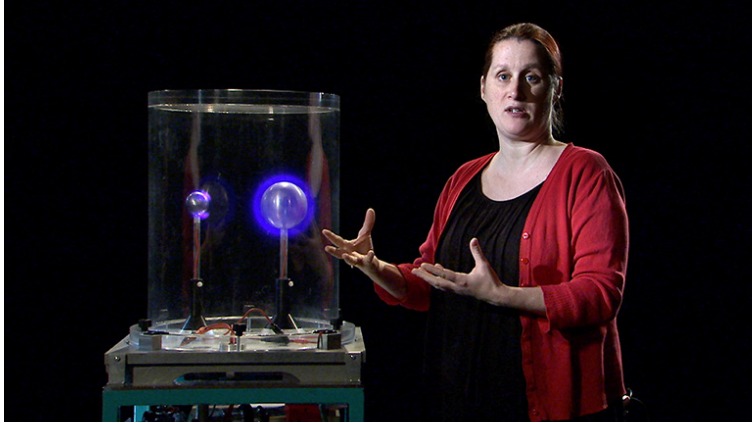Leading light in auroras to give prestigious astronomy lecture

The spectacular light displays of the aurora borealis will be the focus of a prestigious lecture to be given by a University of Leicester space scientist for the Royal Astronomical Society.
Dr Gabrielle Provan from the University’s School of Physics and Astronomy has been selected to give the James Dungey Lecture for 2024, entitled ‘Fantastic Northern Lights of Earth and other planets’, the Society announced today.
Reacting to the announcement, Dr Provan said: “I am delighted to be invited to give this year’s James Dungey lecture. My talk will combine scientific knowledge with public engagement strategies to examine planetary magnetic fields and capture the public’s interest with dazzling auroral displays.”
Dr Provan’s research focusses on the mysterious but omnipresent periodic modulations of Saturn’s magnetosphere known as Planetary Period Oscillations (or PPOs). PPOs affects the entire magnetospheric environment of Saturn, including the brightness and location of Saturn’s aurora. Provan’s work across more than a decade reveals key aspects of PPOs which have been invaluable to understanding their origin, and their impact on Saturn’s magnetosphere. Provan has used the PPOs to define a Saturnian clock and longitude system.
Her outreach work has had a wide impact outside of academia. Her leadership in developing a modern ‘Planeterrella’ – a technological demonstration of the auroral process – for outreach use has proved to have a high impact in bringing the beauty and excitement of the aurora and space physics to a wide audience. It is regularly used at national science festivals. Associated lesson packs enable the Planeterrella to be linked to the British National Curriculum.
Dr Provan has worked tirelessly to make this possible, sacrificing much of her free time to bring the Planeterella to schools for regular visits. By making the plans free to any public institute, the Planeterrella has gained wide traction, with at least ten Planeterrellas in operation across at least four countries.
Each year the RAS recognises significant achievement in the fields of astronomy and geophysics through a number of awards, medals and prizes, encompassing different types of talent from research to education and outreach.
The University of Oxford’s Professor John-Michael Kendall and Professor Gilles Chabrier, of the University of Exeter and Ecole Normale Superieure de Lyon, CNRS, join an illustrious list of luminaries in receiving the Society’s highest honour, the Gold Medal, which dates back 200 years. As well as the Gold Medals, the Royal Astronomical Society also awards a variety of other medals, awards, honorary fellowships and lectureships.
The award announcements were made at the Ordinary Meeting of the Society held on Friday 12 January 2024.
Professor Mike Edmunds, president of the Royal Astronomical Society, said: “It is an honour to recognise such remarkable talent in the fields of astronomy and geophysics.
“Exactly 200 years ago we awarded the first Gold Medals to Charles Babbage and Johann Franz Encke.
“At the time, one of the main objectives of the Astronomical Society of London (it became the RAS in 1831) was to encourage and promote the study of astronomy ‘by bestowing medals or rewards on successful research’.
“The range of our awards has broadened since then, but the standard of the work they reward has remained extremely high – as a glance at this year’s winners will demonstrate.
“I hope (with the RAS founders) that the awards will continue to inspire and advance the study of astronomy and geophysics, both now and in the future.”
View full news story here